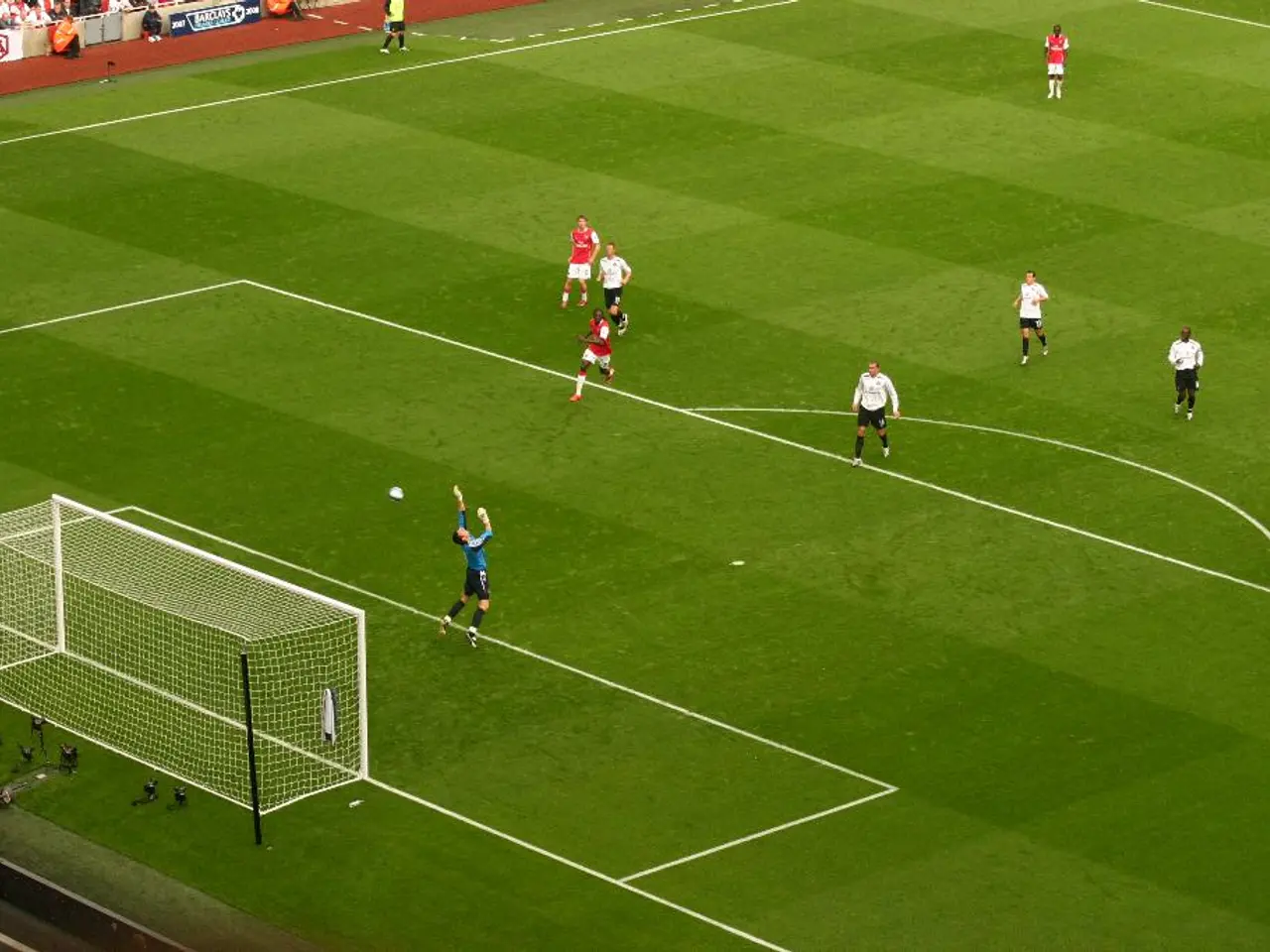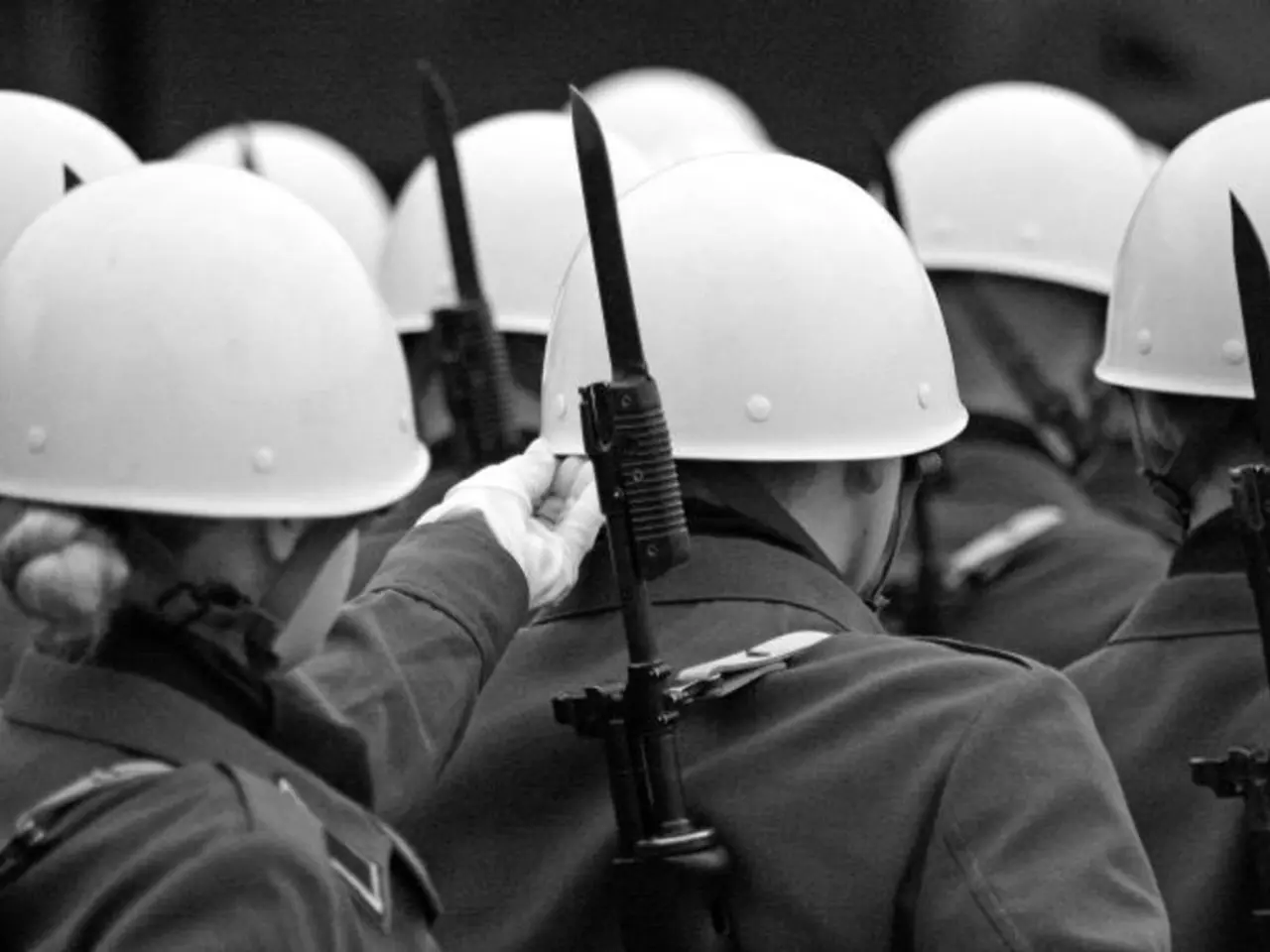Berlin alters its strategy in the Gaza conflict
Germany, a long-standing ally of Israel, has announced a partial halt on exports of military goods to Israel for use in Gaza, expressing concerns about civilian casualties and humanitarian consequences [1][3][5]. This marks a shift from earlier unequivocal military support and underscores Germany's attempt to balance backing Israel while addressing the humanitarian impact of the conflict.
Chancellor Friedrich Merz has emphasized that Germany remains committed to Israel's security but cannot facilitate the supply of weapons that might be used in military operations risking many civilian lives in Gaza [1][5]. He framed the partial arms halt as a responsible stance rather than a change in overall support and has faced internal political backlash for this decision within his party [5].
Germany's stance remains broadly pro-Israel but has evolved to limit direct military support in Gaza and focus more on preventing civilian harm and promoting humanitarian access [1][3][5]. While supporting Israel’s security, Germany calls for de-escalation and a ceasefire to reduce suffering on all sides.
The Israeli leadership had decided to escalate the fighting in the Gaza Strip before this announcement. Israeli Prime Minister Benjamin Netanyahu has expressed disappointment and urged German Chancellor Merz to reconsider the arms export restrictions, highlighting tension between the two countries amid rising Israeli isolation from traditional European backing [1].
In addition, the Israeli security cabinet agreed to a plan to take over the city of Gaza after hours of deliberations. However, Germany's stance is rooted in the concern for the suffering civilian population in the Gaza Strip and urges Israel to allow comprehensive access for aid deliveries [2].
The opposition, including the Green Party and the Left Party, believes the German government's course change does not go far enough and calls for further steps, such as actively pushing for a political process, serious pressure for an end to the war and the humanitarian catastrophe, the release of hostages, and suspending the EU association agreement and recognizing Palestine [4].
| Aspect | Germany's Stance | Israel's Position | |---------------------------------------|-----------------------------------------------------|-----------------------------------------------------| | Military Support | Continues to support Israel's right to defend itself but partially suspended arms exports to Gaza-related military use | Expects full support, disappointed by Germany's arms restriction | | Political Unity | Coalition officially united in support, but some disagreements on statements and methods | N/A | | Humanitarian Concern | Demands safe delivery of humanitarian aid, urges de-escalation and ceasefire to reduce suffering on all sides | Strongly focused on military objectives including Gaza City control | | Recent Policy Evolution | From full military support post-October 2023 attacks to partial arms export suspension in August 2025 | Pushes for continued European backing, concerned about isolation |
It remains unclear which specific military goods Germany will no longer supply to Israel temporarily and whether this will impair the Israeli army's ability to wage war. The Israeli government has accused Germany of rewarding Hamas with a partial weapons export ban [6]. Meanwhile, the German government may feel disavowed by Israel's decision to escalate the war, as Foreign Minister Johann Wadephul had warned against the annexation of the West Bank or the Gaza Strip during a visit to Israel and the Palestinian territories just a week ago [7].
Germany's military support for Israel has shifted, leading to a partial halt on exports of certain military goods that could be used in conflict zones, such as Gaza. This decision has been made with concerns about civilian casualties and humanitarian consequences [1][3][5].
Political discussions and debates are ongoing about Germany's stance, with some calling for additional steps like actively pursuing a political process, applying pressure to end the conflict, and suspending the EU association agreement [4].







